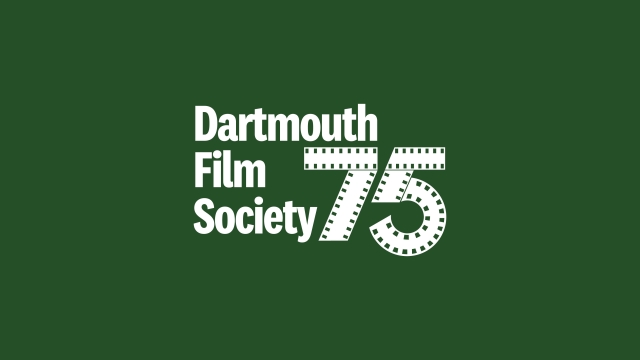
Winter Carnival
written by Maurice Rapf '35 and Budd Schulberg '36Winter Carnival
written by Maurice Rapf '35 and Budd Schulberg '36This event occurred as part of the 24/25 Hop Film season. This is an archived view.
Shot partially on location at Dartmouth, this 1939 cult classic rom-com is an essential part of our annual winter tradition.
A publicity-loving heiress (Ann Sheridan) makes an unexpected return to Dartmouth College's famous winter celebration, where she encounters an old flame—now a comfortably tweedy professor (Richard Carlson). Filmed partly on location, this Dartmouth cult classic was produced by Walter Wanger (Class of 1915), whose other credits include Stagecoach, Scarlet Street and Cleopatra. This film is not a masterpiece like those films, but this endearing love letter to his alma mater does provide a fascinating window into Winter Carnivals of yore.
Wanger recruited a young Budd Schulberg '36 (who won an Oscar for On the Waterfront, screening March 2) and F. Scott Fitzgerald (yes, that one) to co-write the screenplay—but that collaboration proved a complete disaster, and Maurice Rapf '35 rushed in to help get the script over the finish line. The Dartmouth Film Society's 75th anniversary would be incomplete without this alumni joint effort, rarely shown on the big screen.
D: Charles Reisner, US, 1939, 105m
Learn more about the legacy and troubled production of this film in Matthew Skrod's editorial in The Dartmouth.
Walter Wanger (Class of 1915) (rhymes with "danger") was born Walter Feuschtwanger on July 11, 1894 in San Francisco. He attended Dartmouth College where he developed an interest in amateur theater. After leaving Dartmouth, Wanger became a professional theatrical producer in New York City. During World War I, Wanger served in the US Army in Italy. It was during this period that Wanger first came into contact with filmmaking. In April 1918 Wanger was transferred to the Committee on Public Information, and joined an effort to combat anti-war or pro-German sentiment in Allied Italy. This was partly accomplished through a series of short propaganda films screened in Italian cinemas promoting democracy and Allied war aims. After the War he continued in filmmaking where he began in the 1920s at Paramount Pictures, eventually working at virtually every major studio as either a contract producer or an independent. He also served as president of the Academy of Motion Picture Arts and Sciences from 1939 to October 1941 and from December 1941 to 1945. Strongly influenced by European films, Wanger developed a reputation as an intellectual and a socially conscious movie executive who produced provocative message movies and glittering romantic melodramas. His notable credits include Stagecoach (1939), Foreign Correspondent (1940), Scarlet Street (1945) and Cleopatra (1963), which was nominated for nine Academy Awards, including Best Picture. Wanger died on November 18, 1968.
Maurice Rapf '35 grew up in New York City and Los Angeles, attending Los Angeles High School before matriculating at Stanford University. After two years at Stanford, he enrolled at Dartmouth College for his junior and senior years, graduating in 1935 with a degree in English. While at Dartmouth, he was a member of Pi Lambda Phi and the Sphinx, and wrote, directed and acted in plays as a member of the Dartmouth Players. After graduating, he became a freelance screenwriter in Hollywood, where his screenwriting credits included Cinderella and So Dear to My Heart. He played a prominent role in establishing the Screen Writers Guild (later the Writers Guild of America) and served as its secretary. During World War II, Rapf was a screenwriter with the Navy's Office of Inter-American Affairs. Blacklisted in Hollywood in the late 1940s for his union activities and Communist sympathies, Rapf returned to Hanover for several years, where he helped make My First Week at Dartmouth, a recruiting film for the college. He then moved to New York City, where he wrote and directed nonfiction films and was a film critic for Life magazine and Family Circle. In the late 1960s, Rapf was invited back to Dartmouth to help teach courses on film. He became an adjunct professor, helping to establish the Film Studies program and eventually serving as its acting director.
Budd Schulberg '36 was born Seymour Wilson Schulberg on March 27, 1914 in New York City, but grew up in Hollywood. While at Dartmouth he was involved with the Jack-O-Lantern humor magazine and was a member of Pi Lambda Phi fraternity. After graduation he returned to Hollywood and went to work as a reader in the Selznick Pictures story department. In 1941 Schulberg sold his first novel What Makes Sammy Run? to Random House. The novel was an instant critical success, but incited the wrath of the Hollywood elite, as its ruthless protagonist was an amalgamation of the powerful men Schulberg had encountered in Hollywood. Upon the publication of the book, Sam Goldwyn fired Schulberg and Louis B. Mayer remarked that he should be deported from Hollywood. During World War II, Schulberg served in the OSS (Office of Strategic Services), working with John Ford's documentary film unit. He was among the first American servicemen to enter liberated Nazi concentration camps where his unit, which had been involved in gathering visual evidence against war criminals for the Nuremberg trials, documented the atrocities they found. A sports writer with a special interest in boxing, Schulberg published The Harder They Fall in 1947. In 1950 he published The Disenchanted, often described as a thinly disguised portrait of F. Scott Fitzgerald, with whom he briefly worked on the script for Winter Carnival. Identified as a communist, Schulberg appeared before the House-Un-American Activities Committee where he testified against his friends and colleagues and identified individuals as known communists. In 1954 he wrote the screenplay for On the Waterfront starring Marlon Brando. The movie was nominated for eight Academy Awards and Schulberg won for Best Screenplay. Among his other works are A Face in the Crowd (1957), his autobiography Moving Pictures: The Story of a Hollywood Prince (2003) and Some Faces in the Crowd (2007). Budd Schulberg died on August 5, 2009.

Founded in 1949, the Dartmouth Film Society is the oldest college film society in the country. This fall marks the 75th Anniversary!
Learn More
Contact Us
Box Office
Box Office Hours:
Tuesday-Friday: 12-5 pm
Saturday: 2-5 pm
Also open one hour prior to all ticketed events.
Visiting Information
Black Family Visual Arts Center
22 Lebanon Street
Hanover, NH












